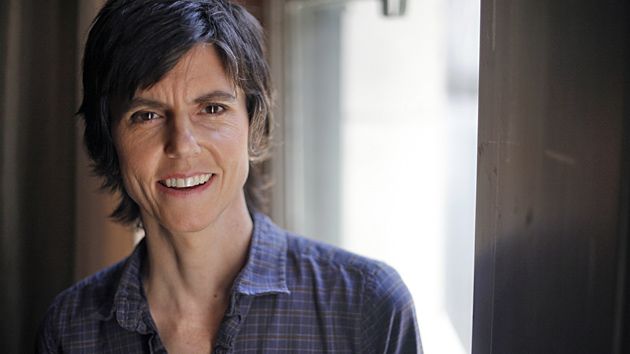Graphic
2012 brought big changes to the entertainment landscape
A canceled TV show with a devoted fan base comes back to life. A video game changes its ending. A comic turns her personal tragedy into unexpected fame.
Welcome to the world of online entertainment, where the interaction between fans and artists created a whole new dynamic in 2012. Ever-evolving technology and the subcultures that grow up around it resulted in some of the year’s most fascinating stories on the Web and social networks.
There were the usual attention-grabbing fare that got millions of clicks until the next big thing happened — from Whitney Houston’s death and the opening of the first “Hunger Games” movie to “The Walking Dead’s” thrills and the rise of Honey Boo Boo.
But other stories had deeper implications because they shined a spotlight on the interactive digital landscape. We selected 10 that caught our attention in 2012; some focused on a celebrity or a personality, others on websites or trends. Each demonstrates the ways in which online participants are changing the traditional creative process.
— Patrick Kevin Day

Psy
Tig Notaro
Kickstarter
‘Arrested Development’
‘Kony 2012’
Rihanna-Chris Brown
‘Mass Effect 3’
‘Innocence of Muslims’
Maker Studios
Pandora Radio
|
What happened:
During a stand-up set at the club Largo in Los Angeles, comedian Tig Notaro wandered away from her planned material and did a 30-minute set about being diagnosed with breast cancer. Comedian Louis C.K., who was present, tweeted that it was “masterful,” then later made the set available on his website for $5 a download. |
|
Key stats:
75,000 downloads sold in the first week. |
|
The result:
Notaro, 41, became an almost overnight sensation after the August show. Famous comedians who attended praised her to their Twitter followers. In October, Louis C.K. made the set available to all, using the model he’d set up for his own stand-up special that bypassed major label distribution. Sales of the set were high enough to have landed it at No. 3 on the Billboard charts if self-distributed recordings were counted. |
|
Why it matters:
Though big stars such as Louis C.K. and the band Radiohead have been able to self-distribute their work to a pre-built fan base, Notaro showed you could move product and gain a following purely through online word of mouth. |
|
More: Tig Notaro turns pain into laughter | Tig Notaro’s comedy album gets backing from Louis C.K. | Comic Tig Notaro, post-cancer, gets book deal |
|
What happened:
Six years after the beloved but ratings-challenged comedy series was canceled by Fox, the show did the near impossible: It reassembled the original cast to film a new season for Netflix, the online streaming film and TV giant. Production began in August for a 10-episode season. |
|
Key stats:
More than 500,000 mentions on Twitter, including a spike when production began. |
|
The result:
Excitement was so high that the number of episodes ordered was raised to 12 to 15. The show will premiere on Netflix in early 2013. |
|
Why it matters:
Netflix, which had started streaming original content with the mob comedy “Lilyhammer” in February, is seen as a savior for beloved yet low-rated shows. The broadcast networks may be struggling for ratings, but TV viewing is surging online. More than 60% of Netflix’s streaming views are for TV shows and subscriptions to online TV provider Hulu Plus top 3 million. |
|
More: Netflix to release new season of ‘Arrested Development’ in spring | Jason Bateman notes first day of ‘Arrested Development’ production |
|
What happened:
Three years after Brown pleaded guilty to felony assault on then-girlfriend Rihanna and was ordered by the court to remain at least 50 yards away from her, the couple apparently resumed their romance in plain sight, sending loving messages to each other through Twitter and Instagram. |
|
Key stats:
27.3 million Twitter followers for Rihanna, 11.8 million Twitter followers for Chris Brown. |
|
The result:
Speculation about the pair’s romantic — if that’s the right word — future remains a hot topic on social media. |
|
Why it matters:
It’s a reminder that social media allow an unprecedented level of interaction between celebrities and their fans. Twitter can boost a celeb’s profile, but it can also create many messes, such as Brown’s R-rated Twitter feud with comedian Jenny Johnson. |
|
More: Rihanna, Chris Brown make their togetherness public at Lakers game | Chris Brown returns to Twitter, gets philosophical on Instagram |
|
What happened:
Two videos uploaded to YouTube, “The Real Life of Muhammad” and “Muhammad Movie Trailer,” which served as trailers for a longer project titled “Innocence of Muslims,” sparked outrage in the Muslim world. Protests in several countries led to multiple deaths and the California filmmaker who made it was sentenced to death in absentia in an Egyptian court. |
|
Key stats:
5.3 million combined views of the two videos on YouTube. |
|
The result:
After a deadly backlash, YouTube blocked the offending videos in multiple countries, including Egypt, Libya and Saudi Arabia. The video can still be viewed in the United States, however filmmaker “Sam Bacile” (a.k.a. Mark Basseley Youssef) was arrested in the U.S. and sentenced to a year behind bars after pleading guilty to violating the terms of his release from an earlier conviction for an unrelated matter. |
|
Why it matters:
The same borderless reach of YouTube that allowed Psy to become an international sensation also allowed freedom of speech in one country to inflame anger in another part of the world. YouTube and parent company Google found themselves mired in international laws and arguments about Internet censorship at home. |
|
More: Judge orders ‘Innocence of Muslims’ filmmaker to jail | Actor duped into appearing in ‘Innocence of Muslims’ explains |
|
What happened:
Maker surpasses Machinima to became the No. 1 independent YouTube network of channels, allowing amateur filmmakers to produce and distribute their shows and films. |
|
Key stats:
5,000 channels with 140 million subscribers and more than 2 billion views a month. |
|
The result:
Maker Studios raises $36 million in investment from major entertainment figures, including Robert Downey Jr. and “Avatar” producer Jon Landau. |
|
Why it matters:
After years of steady growth using YouTube and social media to market short form video content to the key youth demo, Hollywood and tech players are finally getting serious. Suddenly, the world of low-cost entertainment is getting an upgrade, with Maker completing work on a 40,000-square-foot production facility this year. |
|
More: Maker Studios raises $36 million from big-name investors | OMG, it’s a YouTube channel just for millennials |
|
What happened:
In July, the online streaming music service announced it had increased the number of active listeners nearly 50% over the previous 12 months. Despite the rapid growth, the company argues that its royalty payments are robbing it of profit. |
|
Key stats:
62.4 million active listeners. |
|
The result:
Pandora executives testified before Congress in November in support of the Internet Radio Fairness Act, which would lower the amount Pandora pays in royalties and bring it in line with what broadcast radio pays. |
|
Why it matters:
Pandora is now the third most popular form of music behind broadcast radio and CDs. Musicians are arguing against the legislation, as the growing form of music distribution is finally providing them money after years of lost income to illegal music downloading. As more and more streaming music services appear online, including a rumored music service from Apple in early 2013, the battle for profit and market share will become only more intense. |
|
More: Musicians oppose Pandora radio’s effort to cut payments | Pandora: The No. 1 radio station in Los Angeles? |










